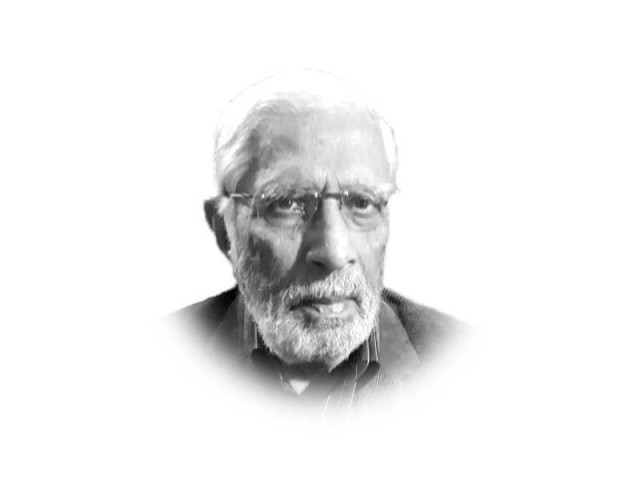The year of NAB
The outgoing year got nabbed by NAB and it remained in the clutches of the Bureau all through the 12 months

The writer served as Executive Editor of The Express Tribune from 2009 to 2014
By the end of the year, most of the PML-N and the PPP’s top leaders were in the custody of NAB, but except for the three high profile cases against former prime minister Nawaz Sharif, not a single one could reach its logical conclusion, one way or the other. Currently, the entire Sharif family except for Maryam Nawaz and Hamza Shehbaz is abroad with Nawaz on medical bail accompanied by Shehbaz as his medical attendant.
In the cases against the PPP, Co-Chairperson Asif Ali Zardari and his sister Faryal Talpur, NAB is yet to submit the necessary challan. Both are now out on bail.
And it was in the last week of the outgoing year that the accountability process received its biggest jolt when the Lahore High Court (LHC) granted bail to Rana Sanaullah, the PML-N Punjab’s chief, who was arrested in July this year on drug smuggling charges. Another PML-N leader, Miftah Ismail, was also bailed out at the same time. In the closing weeks of the year the accountability process appeared to be losing its steam.
In the second half of the year Pakistan’s attention was once again drawn towards Kashmir as the Indian government, in a surprise move, withdrew the special status the of India-Occupied Kashmir (IOK) and locked it down denying it all kinds of communication facilities, turning the valley into a virtual prison. Indian PM Modi followed it by having an anti-Muslim citizenship bill passed by parliament, creating panic among India’s largest minority which was already feeling endangered because of the National Register of Citizens (NRC) which threatened Muslims without proper citizenship documents with ejection from India.
PM Imran Khan’s two meetings with US President Donald Trump during the year revived the hope that relations with the world’s sole superpower would take a turn for the better. The US wanted Pakistan’s cooperation in its bid to woo the Afghan Taliban for bringing the war in Afghanistan to an end. Pakistan obliged willingly and the Afghan Taliban and US Representative Zalmay Khalilzad resumed the Doha parleys.
In the last week of December, the government filed a review petition against the Supreme Court’s ruling allowing Chief of Army Staff (COAS) Gen Bajwa an extension of six months by the expiry of which parliament is to come up with a comprehensive law governing matters of appointment and extension for the COAS. The review appeal lists the federal government, PM Imran Khan, President Arif Alvi and Army Chief Gen Bajwa as petitioners.
And in another surprising development as the year was coming to a close, the special court conducting the trial of former president and ex-COAS Gen (retd) Pervez Musharraf for treason, held him guilty as charged and sentenced him to death on five counts. What, however, was too unpleasant to read in the detailed judgment was the remark (not part of the judgment) of the lead Judge, Justice Waqar Seth, that if Musharraf died before his arrest then his body be dragged to D-Chowk and left hanging there for three days.
Published in The Express Tribune, December 28th, 2019.
Like Opinion & Editorial on Facebook, follow @ETOpEd on Twitter to receive all updates on all our daily pieces.















COMMENTS
Comments are moderated and generally will be posted if they are on-topic and not abusive.
For more information, please see our Comments FAQ